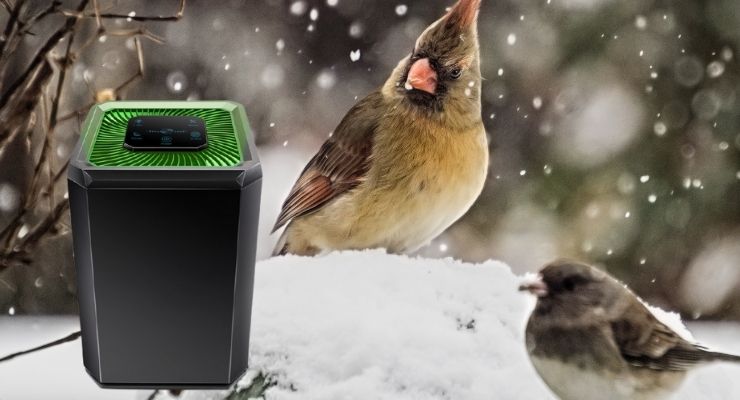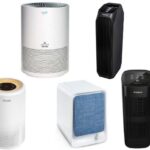The presence of a bird in your home can be fun and entertaining. However, if you have allergies or simply do not want the mess that comes with pet ownership, it is important to know how to keep bird dander down. This is especially true for those who own birds such as parrots and cockatiels, where the dander levels tend to be higher than average due to their size.
However, some people may not realize that birds also emit dander (small particles of dried skin) which can cause allergic reactions in humans. This article will discuss how to keep the amount of bird dander down by giving tips on what to do after your pet bird has been out of its cage for an extended period of time.
So, keep reading below as we discuss some simple steps that will help you reduce your chances of suffering from allergen-related issues when living with a pet bird!
How to keep bird dander down?
If you or someone in your family has a bird, then you know how difficult it can be to keep the dander down. Birds produce an exceptional amount of dander, and some individuals are more sensitive than others. Thankfully, there are many ways that you can reduce those pesky allergy symptoms when owning a bird as a pet.
In this blog post, we’ll go over some common questions about keeping the air clear for those who have allergies! So let’s get started…
Here are some tips on how to keep bird dander down:
Bathe Regularly:
If you own a bird, it is very important that you bathe the animal regularly. Most birds like to take baths using their water dishes or other items that they can climb onto and dunk themselves in the liquid. Bathing will help reduce the amount of dander shed from the bird as well as give them a nice clean coat.
Clean Daily:
It is important to keep your birds cage clean on a daily basis. While you are cleaning their cage, make sure that you vacuum or mop any place where they have been playing or perching on. This will not only reduce any dander but will also help keep your house clean and fresh.
Cleaning the Cage:
To clean the inside of the cage, you should use a vacuum cleaner to suck up any loose debris. If you don’t have a vacuum cleaner, you can carefully use a broom to sweep up the debris. If there are any stains in the bottom of the cage, you’ll need to use a disinfectant.
Consider Filters :
One great way to keep the air clean is by using a filter. There are many types of filters available, from HEPA and charcoal filters and more inexpensive and inexpensive filters that you can attach directly to your HVAC unit. Many times these small filters go on unnoticed but will remove dander and other allergens from the air.
Open all Windows, Close all Doors!
Since bird dander can be very light, it’s important to make sure the dander has been carried outside. To do this, open any windows in your home and use fans to force the air out of any enclosed spaces.
Also, you should close all doors leading outside of your home for about 20 minutes after using cleaning products or vacuums to keep the particles from spreading throughout the house.
We’re Going to Need Some Help!
If you get tired of cleaning after your pet bird, you might want to consider getting some assistance. Many products are available on the market (like Swheat Scoop Litter) that will help keep the bird dander down by creating a powder that absorbs the dander.
In addition, there are also carpet shampoos you can use on your carpets and rugs, which have enzymes in them that break down the waste so it cannot be seen. If you don’t want to purchase products at a store, ask a friend or family member if they have any methods that help to keep dander down.
Have a Seat!
It’s important to vacuum and clean your furniture after the bird has been out of its cage for extended periods because bird dander can build up on chairs and couches. This is one last effort you can make to keep the dander at a minimum.
Time for a Vacation!
You should consider taking a vacation after your pet bird has been out of its cage for an extended period of time. This will give your house a chance to air out and rid it of any extra dander that has accumulated throughout the day. When you return home, go through the steps listed in this article to rid your house of bird dander so everyone can be happy!
Clean Favorite Areas:
Many birds like to perch on wooden, plastic, and wicker surfaces. These areas should be cleaned with a damp cloth and soap each week to reduce the amount of dander that has been built up from those areas.
Consider Filters: Some people may consider investing in a HEPA filter to attach to their central air system. This will help reduce the number of airborne particles that are found in the home when having an asthmatic individual in your house.
Do we Really Need to Go Outside?
Consider changing your environment when it comes down to allergies when you have a bird as a pet. Birds love the sunshine and fresh air; however, they generate a lot of dander each day.
If you can’t take your bird outside for some fresh air, it’s important to put him in a large room with the windows open and the door closed for about 20 minutes. This will help rid your home of any extra dander that has accumulated throughout the day!
So if you’re like many people who are allergic to bird dander, then it is very important that you pay attention to the information in this blog post if you own a bird!
There are many ways that you can reduce your exposure to allergens from your bird. The most important thing you can do for yourself is bathing the bird regularly and keep their environment as clean as possible at all times!
Keep in mind that it may be helpful to have someone else help you out with this if your symptoms are severe, but with a few changes to your routine and some extra cleaning, you’ll be breathing easier in no time!
Do birds need an air purifier?
Yes, birds may need an air purifier, especially if the bird is a senior and has more feather dander. Because cockatiels typically live under 20 years, they can be considered seniors at 17 years of age. As we all know, birds produce large amounts of dander; therefore, their environment should always be clean!
When you mop and vacuum the cage, attach a HEPA filter to your central air system. This will keep the dander level down in the house and the bird breathing easier!
Are air purifiers safe for birds?
Yes, air purifiers are safe for birds; however, we don’t recommend you to use an ionic air purifier because it could be harmful and dangerous. We recommend that you use a mechanical air filter like a HEPA filter.
If you own a very old bird or one with respiratory issues, then the best option is to go with a HEPA purifier specifically designed for birds.
If you can’t afford to buy a separate one, then at the very least try to get an extender filter which should reduce about 10-15% of dust particles from being released into the air. Most mechanical filters should be kept at least 1-2 feet away because they generate heat.
If you can’t find a mechanical filter, then try to get an ionic air purifier. However, we don’t recommend you to use one unless it has a very low speed and is not in close proximity to the bird’s living area. It’s also recommended that you open windows for ventilation when using an air filter because they consume some.
Can bird dander make you sick?
Yes, Birds can make you sick in several different ways, but the most common is via inhalation. If you’re allergic to birds, their dander or feathers can cause an allergic reaction, including sneezing, watery eyes, and asthma symptoms. Allergic symptoms are caused because the immune system overreacts to these allergens. Depending on the severity of your symptoms, you may need to take allergy medications and/or get allergy shots.
What are the best air purifiers for bird dander?
The best air purifiers for bird dander are the ones that are designed to remove particles >.5 microns. Many filters claim to do this, but very few of them actually work because the majority of filters available on the market today are hard-surface or HEPA filters.
Unfortunately, HEPA filters are not designed to remove particles that small, and therefore they aren’t effective at removing the allergens from bird dander. The best air purifiers for bird dander will be those that are designed to remove particles as small as .3 microns, such as the Blueair blue pure 411.
This filter removes all particles that are this size. It removes allergens from your bird, pollen, dust mites, pet dander, and mold spores.
How do I get rid of bird dander? – Related Questions
1. Can you be allergic to bird dander?
Answer: Yes, this is possible if someone spends a significant amount of time around their bird. If you spend a lot of time with your bird, you might be getting an allergy from the dander that they leave behind. If your bird is outdoors or in a cage often, then this may not happen.
2. Is bird dander harmful to babies?
Answer: Yes, it can be. However, if you have a bird that is caged often or out for only a few hours a day, then it may not be much of a problem. If the baby is crawling around on the floor, it could potentially come into contact with dander on the floor. If you are afraid of the dander, then it is best to keep your bird caged or out of your baby’s play area.
3. Can I get rid of bird dander by changing my bird?
Answer: Unfortunately, it is unlikely that you will be able to get rid of bird dander by simply getting a new bird. You may be able to get a different breed of bird, but chances are you will still have the same problems with dander. If you do get a new bird, it will be best to keep your old one caged or out of the way when you are not around.
4. Can I get rid of bird dander by getting more birds?
Answer: You can try to combat the dander problem by getting more birds, but it likely will not get rid of your problems. If you get a lot of birds, they should be in a cage or in another room. If not, then the dander from the feathers will still bother you while you sleep.
5. Can bird cause respiratory problems in humans?
Answer: Yes, birds can cause respiratory problems in humans. There are many factors that contribute to respiratory issues with respect to birds, including the breed of the bird, the type of environment the bird lives in, and the amount of time that the person spends around the bird.
If you have a pet bird, it will be easier to take care of it if the bird is in a cage. When the bird is not in a cage, its dander and other allergens will get into your house.
However, suppose the bird is an outdoor pet, or you have multiple birds at once. In that case, you are likely to have more respiratory problems if you have a pre-existing respiratory condition. If you are concerned about your bird’s dander causing respiratory issues, then it is best to go with caged birds or not to have any birds at all.
6. How much dander does a bird produce?
Answer: Depending on the breed of the bird, a bird can produce a significant amount of dander. In general, birds with larger feathers will produce more dander. Birds that are also more active will also produce more dander. Birds that are not in their cage or only out for a small amount of time will produce more dander than birds that are always in their cage or outside.
7. Can keeping birds affect your health?
Answer: Yes, keeping birds can affect your health. Many people keep birds without problem or have no respiratory issues surrounding the bird. However, there are still those who have reason to be worried about their bird’s dander causing respiratory issues.
If your doctor is worried about the dander affecting your respiratory system, then you may want to consider not having birds in your home. If you already have birds, then do not let them in the same place where you sleep. Keep them in a cage or in another room.
8. Is parrot dander harmful to humans?
Answer: Parrot dander is harmful to humans, but not always. If you are allergic to avian dander already, then any exposure to bird dander could cause an allergic reaction. However, if you are not allergic to avian dander, parrot dander may not be harmful.
However, parrots are very active birds which means they likely produce more dander than other types of birds. It is best to use caution if you are not sure whether or not you are allergic.
9. Why is bird dander so dangerous?
Answer: Bird dander can be dangerous to humans depending on your exposure level to the dander. If you are allergic, then even slight exposure can cause an allergy reaction in your respiratory system.
However, if you are not allergic to avian dander, then it is much less likely that bird dander will cause respiratory problems. The dander from birds is made up of a fine powder. You can breathe it in when it becomes air. It has allergens in it and you could get sick with allergies if you breathe in the dander.
However, if you are not allergic or do not have a respiratory problem, then bird dander should not be a problem.
Conclusion:
Now you know how to keep bird dander down and don’t have to worry about sneezing out feathers. Remember what we said above? Clean your home regularly! It will make a huge difference in the number of allergens floating around for all pet owners.
However, we hope this article has been helpful for you. If so, please share it with your friends and family! Remember always to be mindful when visiting a bird feeder or birdhouse. Keep in mind that some birds are more likely than others to cause allergies due to their dander levels.
It is also important to know the type of species you have around your home if someone in your household suffers from severe allergic reactions. Besides just avoiding contact with feathers, there are plenty of ways that will keep bird dander down while still allowing us all to enjoy watching our feathered friends outside on nice days!





